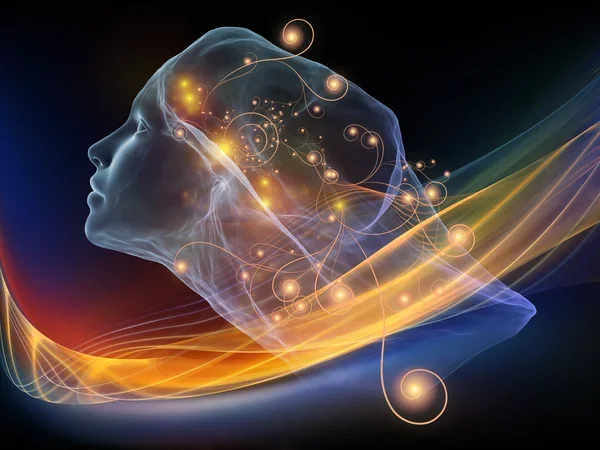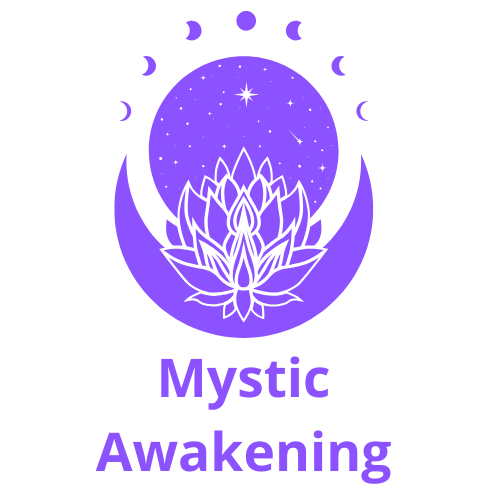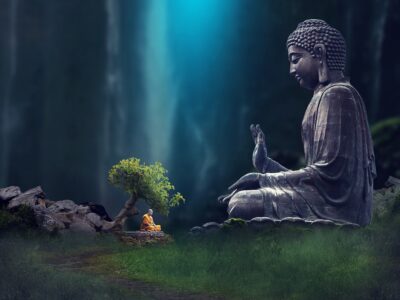
Spiritual Ego Traps Blocking Your Holistic Growth
In today’s holistic and mystic world, many seekers encounter subtle yet persistent obstacles that can hinder their path to enlightenment. While many believe that embracing spirituality means completely transcending the ego, the truth is far more nuanced. The traps of the spiritual ego can mislead you into thinking you have reached a higher state, when in reality, they may be stunting your holistic growth. In this article, we explore six common spiritual ego traps and offer practical advice to help you move towards a more authentic path of self-awareness and spiritual liberation.
The Illusion of Spiritual Superiority
Within the rich tapestry of holistic and mystical practices, one of the most dangerous pitfalls is the sense of spiritual superiority. Many practitioners start their journey with a sincere desire to evolve, only to fall into the trap of believing they are inherently more enlightened than others. This mindset creates an invisible barrier that alienates you from the broader human experience. Spiritual arrogance can seduce even the most dedicated seeker into thinking they have transcended everyday limitations, while in fact, true growth comes from embracing our common human vulnerabilities.

This false sense of superiority may lead to isolation and a disconnection from the real, everyday experiences that teach us valuable lessons. Over time, it diminishes our ability to fully engage with the world and learn from those around us. By keeping your ego in check and embracing humility, you open up to empathy, compassion, and a deeper understanding of your own imperfections.
To free yourself from this trap, continuously reflect on your true motivations and acknowledge that every step in your journey offers a learning opportunity. Cultivating self-awareness and welcoming diverse perspectives will help you avoid the temptation to compare. Remember that genuine spiritual growth is fueled not by comparison, but by an honest recognition of both your strengths and weaknesses. Humility and openness remain your most valuable tools.
The Trap of Certainty and Dogmatism
Another prevalent trap on the spiritual path is the unwarranted belief in absolute certainty. Within holistic and mystic practices, there is often a pull towards rigid viewpoints and dogmas, with the appeal of having concrete answers in an ambiguous world. However, this need for certainty can dampen your curiosity and hinder your ability to embrace new, enriching ideas.
Dogmatism, by its very nature, discourages questioning and innovation by clinging to fixed beliefs. Absolute certainty might provide temporary comfort, but over time it transforms into a prison that blocks personal transformation and spiritual expansion. It is important to revisit even the most revered traditions with an open mind, as clinging to outdated paradigms can limit your engagement with the continuously evolving nature of holistic experiences.
Avoid this trap by fostering a mindset where curiosity takes precedence over unyielding conviction. View knowledge as an ever-evolving journey rather than a fixed destination. By honoring both time-tested wisdom and emerging insights, you enrich your spiritual practice and invite continual growth. True enlightenment is found when you make space for the unknown and welcome the evolution of thought.
Embracing Uncertainty
Accepting uncertainty means understanding that every belief has the potential to evolve. This opening of mind invites new learning opportunities instead of confining you to outdated ideas.
Uncertainty can be a powerful catalyst for personal transformation when you allow it to challenge conventional thought.
Adapting to New Perspectives
Staying receptive to new perspectives is essential in the dynamic field of spirituality. Rather than dismissing alternative views, invite them into your practice.
Welcoming diverse insights not only enriches your understanding of the world but also liberates you from the rigidity of dogmatism.
Relinquishing Personal Power to the Ego

In the pursuit of inner harmony, many spiritual practitioners unknowingly surrender their personal power to the very ego they wish to transcend. Ironically, clinging to a spiritual identity can foster a dependency on external validation and self-imposed limitations, thereby impeding natural growth.
When the ego is allowed to define your spiritual identity, it creates a barrier that obscures your authentic self. Personal empowerment truly begins when you can distinguish between genuine self-awareness and the comforting yet limiting identity shaped by societal expectations. This dependency on the ego not only stunts true transformation but also reduces you to a mere reflection of ancient practices without internalizing their deeper meanings.
To reclaim your personal power, begin by embracing vulnerability and acknowledging your limitations. Engage fully in practices that promote deep self-reflection and personal responsibility. With consistent self-inquiry, you can identify and diminish the ego’s hold, allowing your authentic self to thrive. This process delicately balances honoring tradition with nurturing an independent, enriched spiritual identity.
Strategies to Reclaim Your Power
Integrate daily mindfulness practices that illuminate both your inner strengths and areas needing growth.
Utilize self-empowerment tools such as journaling, meditation, and introspection to break free from limiting beliefs.
Identifying the Signs
Learn to recognize when your decisions are driven more by the need for external validation rather than authentic self-expression.
Awareness is the essential first step in distinguishing true spiritual evolution from behavior dictated by the ego.
Reactionary Spirituality and Its Pitfalls
Often, spiritual seekers may fall into the trap of reactionary spirituality, where divine practices are adopted merely as a counter-response to modern challenges or societal norms. While this rebellious approach can sometimes serve as a catalyst, it may also reinforce the ego’s desires rather than diminish them. Reactionary spirituality frequently transforms into a struggle against external forces, where your efforts are geared toward proving superiority or rejecting mainstream beliefs.
The danger lies in confusing rebellion with true spiritual progress. Reacting against the norm might give your ego a short-lived boost, yet it seldom lays the groundwork for enduring inner peace or substantial growth. Over time, this constant need for opposition can leave you feeling fragmented and disconnected from your true self.
To steer away from reactionary patterns, cultivate a balanced approach that merges introspection with insights from multiple perspectives. Dedicate time to deliberate self-reflection rather than impulsive reactions. Recognize that unreflective rebellion is counterproductive; instead, aim for a spirituality that harmoniously integrates traditional wisdom with modern awareness.

Balanced Spiritual Practice
Blend ancient teachings with modern mindfulness techniques to achieve a comprehensive, holistic practice.
A balanced approach allows you to draw valuable lessons from the past while simultaneously addressing contemporary challenges.
Mindful Reactions
Practice pausing and reflecting before responding to external stimuli, ensuring your reactions come from a place of inner wisdom.
This mindful pause can distinguish an ego-based reaction from a thoughtful, insightful response.
The Danger of Comparison and Self-Judgment
A common yet often overlooked trap in holistic growth is the tendency to compare your spiritual journey with that of others. In an era dominated by social media and instant communication, it is easy to measure your progress against idealized versions of someone else's experience. This comparison can lead to harsh self-judgment and a distorted perception of your own path.
Comparison anchors you in the external world instead of encouraging you to honor your unique journey. Self-judgment transforms a rich, personal evolution into a competition, where you might ignore subtle yet significant progress in your spiritual practice. This mindset can obscure the small steps of growth and the individual pace inherent to your journey.
Break free from this trap by focusing on your personal journey rather than external benchmarks. Incorporate self-compassion practices into your daily routine and recognize that your path, with its ups and downs, is uniquely yours. A routine of reflection and gratitude will help you celebrate every small victory and insight along the way. Your spiritual journey is an intimate process, and honoring it without judgment is key to sustained growth.

Cultivating Self-Compassion
Engage in daily practices such as meditation, affirmations, or gentle journaling to reinforce your inherent worth.
Self-compassion allows you to transform mistakes and setbacks into valuable learning opportunities.
Focusing on Personal Growth
Shift your focus from comparing yourself to others to recognizing and celebrating your own progress each day.
Your unique journey is worth celebrating, and aligning with your true self is the ultimate path to fulfillment.
Overcoming the Spiritual Ego Traps
The final trap on our journey involves the overall influence of the spiritual ego, which manifests subtly yet pervasively to undermine your holistic growth. This multifaceted challenge weaves together elements such as arrogance, dogmatism, reactionary responses, and destructive comparisons, creating a formidable barrier to true inner transformation.
Effectively overcoming these pitfalls requires a deliberate effort to dismantle the unconscious attachments that feed your ego. Acknowledging these traps forms the crucial first step towards establishing a spiritual practice that is both authentic and adaptive. Embrace self-reflection, accept imperfections, and bravely step beyond the confines of conditioned identities.
Practical strategies include daily meditation, sincere self-assessment, and seeking honest feedback from a supportive community of fellow seekers. By integrating these approaches, you pave the way for a balanced and evolving spiritual journey—one that respects both ancient wisdom and modern insights. Step by step, reclaim your power to continually evolve and experience lasting holistic growth.
Developing a Conscious Practice
Design your daily routine to incorporate meditation, journaling, and mindfulness exercises to continuously sharpen self-awareness.
These disciplined practices can gradually dissolve entrenched ego patterns while reinforcing your inner strength.
Seeking Mentorship and Community
Engage actively with a community of spiritual seekers who promote honest dialogue and reflective growth.

A supportive network offers the external perspectives that are essential to challenging and evolving your inner landscape.
Content Additional
Expanding on the themes discussed, it is essential to understand that genuine holistic growth arises from a continuous process of self-evaluation and refinement. In a world where superficial metrics and social validations often dominate, returning to the core principles of self-awareness and compassion becomes even more important. A balanced and introspective approach not only deepens your spiritual journey but also equips you to face modern challenges with resilience and authenticity.
Recent research in mindfulness and holistic health demonstrates that regular meditative practices can significantly reduce stress while enhancing self-awareness and emotional regulation. Actively participating in community discussions and sharing your experiences further enriches your path. Remember that moments of vulnerability create opportunities for connection and insight, turning setbacks into lessons and clarity into triumph.
By integrating these mindful practices into your daily life, you create a sustainable path toward long-term wellbeing. Although the transformation may be gradual, the rewards are profound. Embrace each challenge and celebrate every achievement on your spiritual journey, recognizing that every step forward deepens your comprehensive understanding of self. Stay curious, remain compassionate, and never underestimate the power of honest self-reflection as you navigate the complex interplay between the ego and the spirit.
Recognizing and addressing the spiritual ego traps is vital for anyone committed to true holistic growth. By identifying the illusion of superiority, the rigidity of dogmatism, the surrender of personal power, reactionary responses, and the pitfalls of comparison, you can nurture a more genuine and empowering spiritual practice. Remember, the journey toward self-discovery and inner balance is ongoing and requires both mindfulness and compassion. Embrace your spiritual path fully and view the act of overcoming these traps not as defeat, but as vital steps of progress. This guide is a reminder that enlightenment is less about achieving perfection and more about engaging in continuous learning and evolution.


